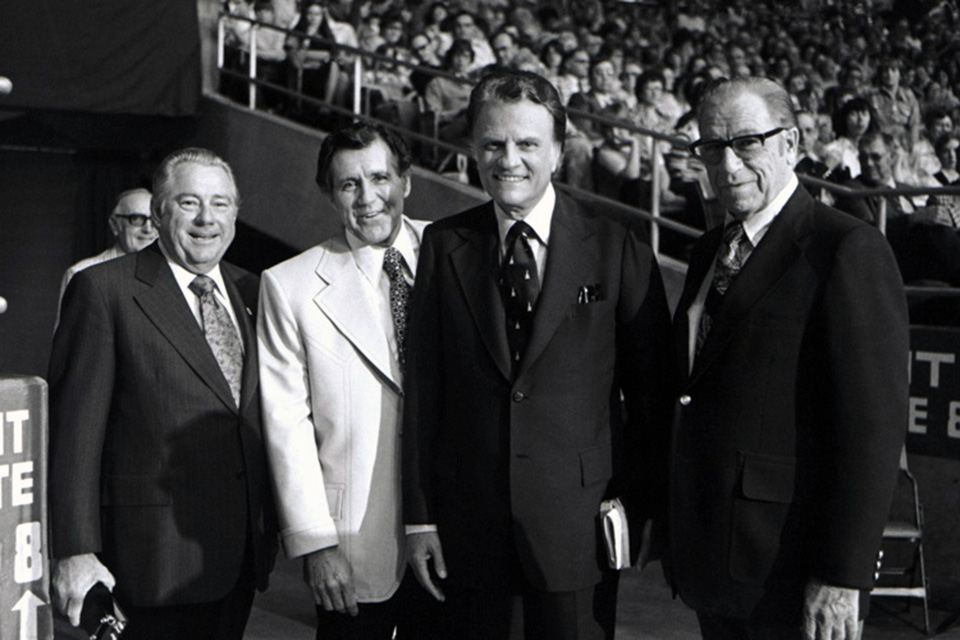
Q: Which four problems did Billy Graham and his team specifically vow to avoid?
A: Sexual immorality, dishonest publicity, money mismanagement, and failure to work with local pastors and churches.
In the early days of Billy Graham’s ministry, he would talk from time to time with members of his team about the problems preachers faced. Many Americans didn’t have a good opinion of mass evangelism, and a young Mr. Graham had seen evangelists stumble and fall because of sin.
In 1948, while he was holding evangelistic meetings in Modesto, California, Mr. Graham asked his core team—Grady Wilson, Cliff Barrows, and George Beverly Shea—to spend an hour making a list of all the problems that could derail their efforts to share the Good News of Jesus Christ with the world.
“The lists were remarkably similar, and in a short amount of time, we made a series of resolutions or commitments among ourselves that would guide us in our future evangelistic work,” he wrote in his autobiography, Just As I Am.
“In reality, it was more of an informal understanding among ourselves—a shared commitment to do all we could do to uphold the Bible’s standard of absolute integrity and purity for evangelists.”
They identified four major areas to treat with the utmost caution and care: money, sexual morality, publicity, and relationships with local churches.
Money
The team agreed to avoid the pitfalls of greed and to skip emotional appeals for offerings during evangelistic events. Instead, they would focus more on local fundraising beforehand. They also agreed to manage money well and to keep careful records.
Sexual Morality
“We all knew of evangelists who had fallen into immorality while separated from their families by travel,” Mr. Graham wrote. “We pledged among ourselves to avoid any situation that would have even the appearance of compromise or suspicion.
“From that day on, I did not travel, meet or eat alone with a woman other than my wife,” he wrote. “We determined that the Apostle Paul’s mandate to the young pastor Timothy would be ours as well: ‘Flee … youthful lusts’ (2 Timothy 1:22, KJV).”
Working With Churches
The team had seen other evangelists openly and harshly criticize churches and pastors. Instead of tearing down local churches, Mr. Graham’s team believed in cooperating with anyone who believed in the core tenets of the Christian faith and wanted to share the Gospel with others.
“We determined to cooperate with all who would cooperate with us in the public proclamation of the Gospel and to avoid an antichurch or anticlergy attitude,” Mr. Graham wrote.
Publicity
Knowing the media and the public were wary of evangelists because some of them exaggerated attendance numbers and inflated themselves, Mr. Graham and his team vowed to report accurate numbers and to never embellish or misrepresent their ministry.
The commitments that were outlined in California became known as the “Modesto Manifesto.” Many ministry leaders, public figures, and individual believers have since adopted the same principles as a way of maintaining Biblical integrity in an age where immorality has become the norm.

